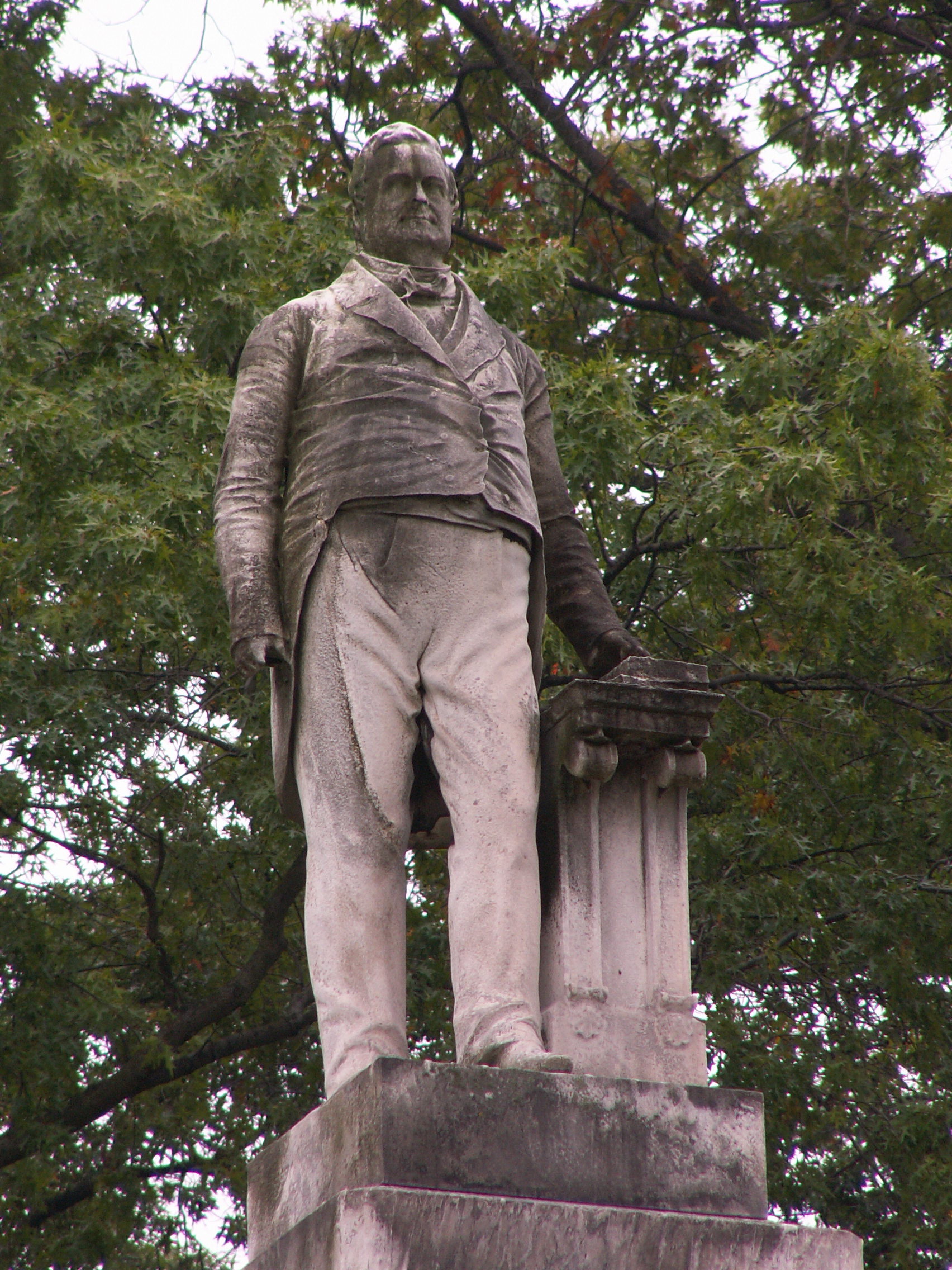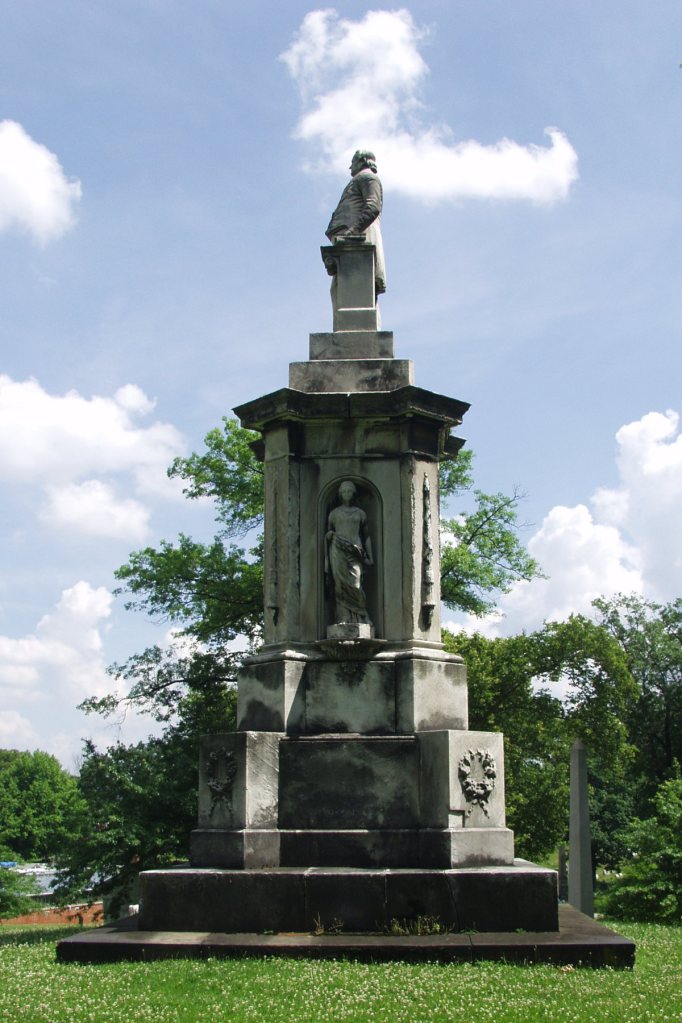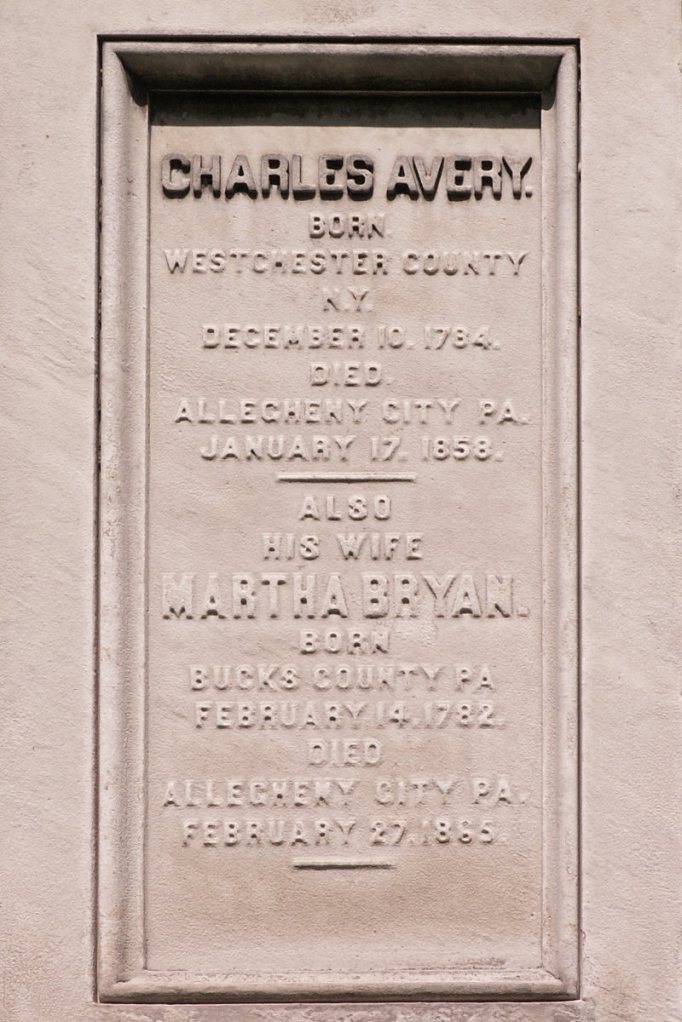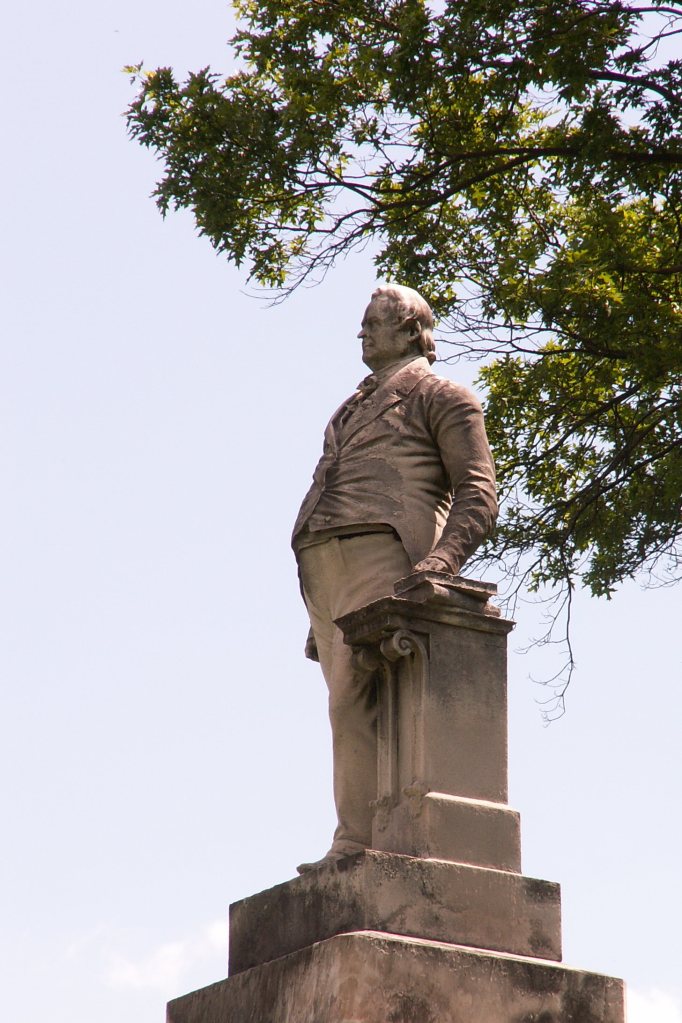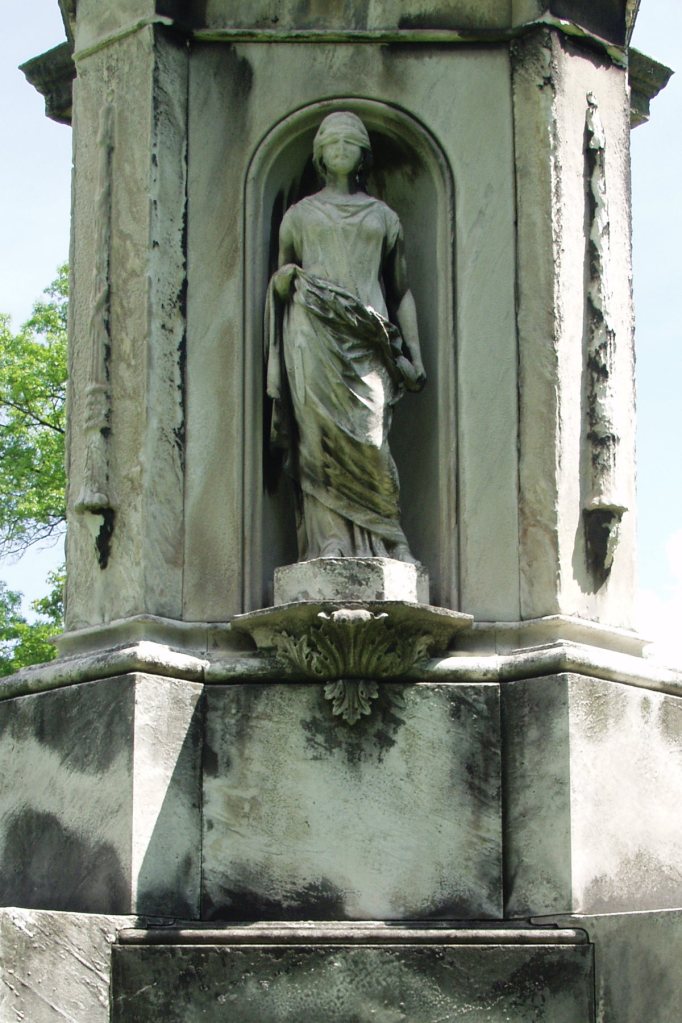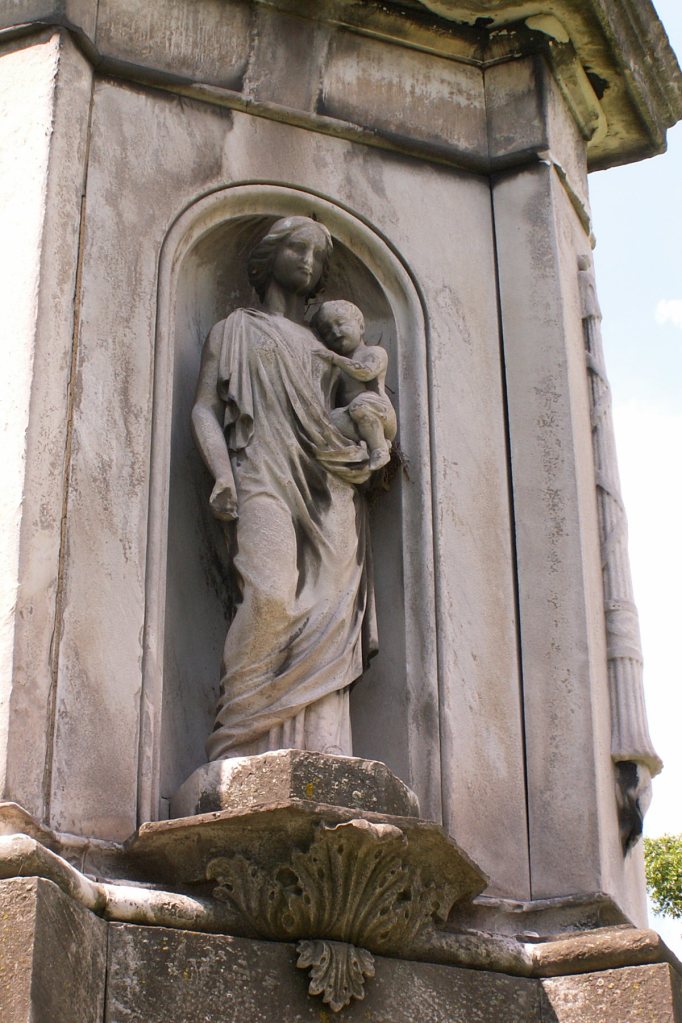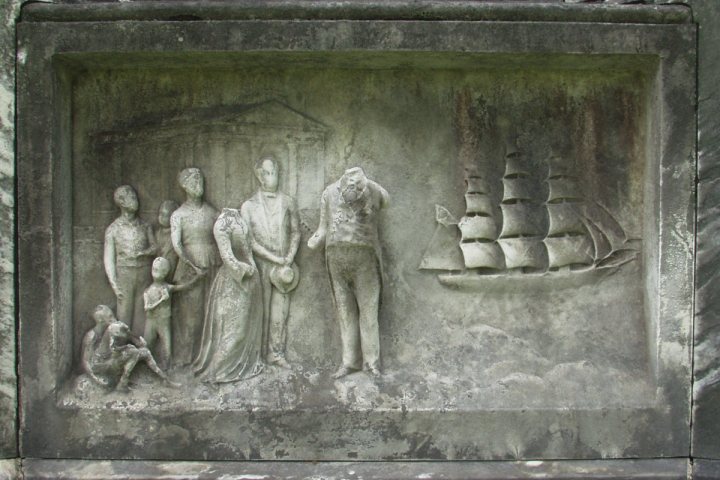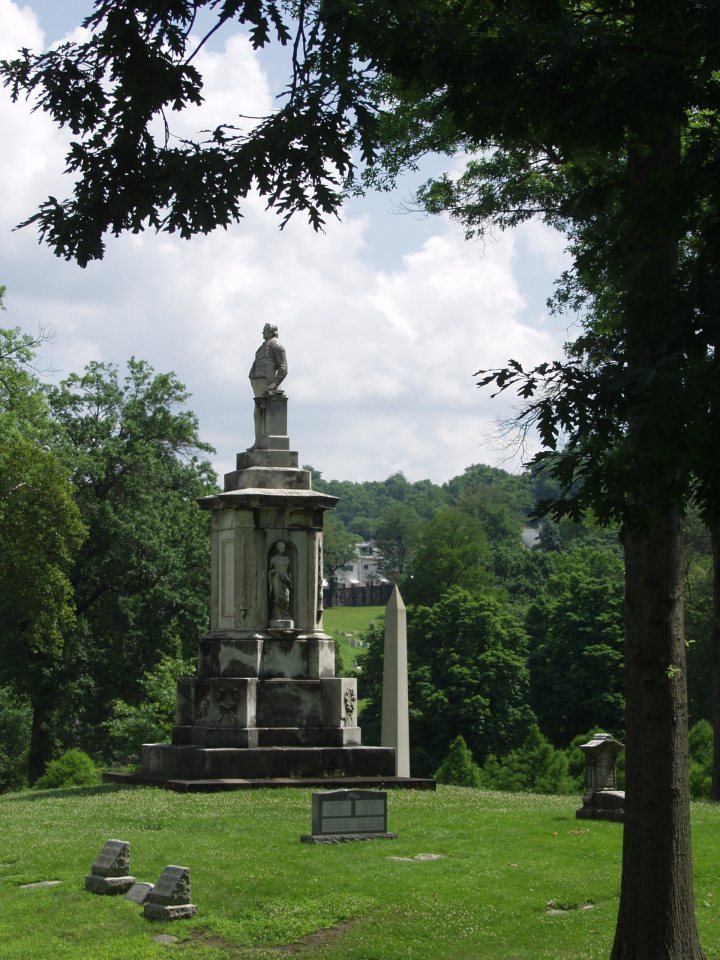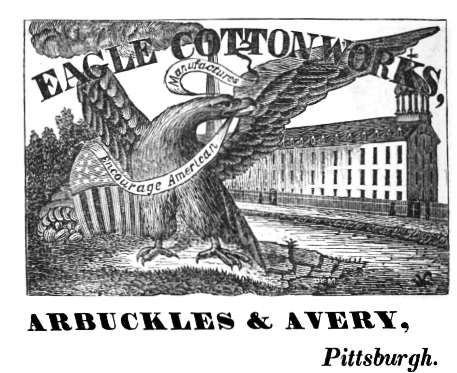Unfortunately this memorial was executed in soft stone that has decayed considerably over the last century and a half. It’s still impressive, though, and the erosion gives one the sense of confronting the distant past face to face.
Avery was a notable abolitionist who founded the Allegheny Institute and Mission Church, later Avery College, whose mission was to provide an education meeting the highest standards for free black students of both sexes. (The rumor had it that it was also a stop on the Underground Railroad, which is quite likely, given Avery’s strong feelings about slavery.) Avery’s monument is decorated with allegorical sculptures whose mutilation over the years makes their meaning hard to interpret. This blindfolded woman has lost her right hand and whatever she was holding in it. Was she Justice?
This young mother, again, has lost part of her right hand, and probably some allegorical attribute with it.
This mutilated relief may depict Avery College in the background; though it survived till about 1970 in Dutchtown, Father Pitt has not found a picture of the building. The headless figure at right has the rotund torso of the Rev. Charles Avery; the other figures seem to be some of the Negro citizens who benefited from his work. Father Pitt is not sure what the ship has to do with the story; Avery was not one of those colonizationists who believed in sending Africans back to Africa. He believed that education would make the Negro an equal citizen in the United States. He did, however, sponsor missions to Africa, and perhaps the ship represents those.
Charles Avery made his fortune in the cotton-milling business with his partner John Arbuckle—the man who later invented the process for roasting and packaging coffee on an industrial scale. Avery made many trips to the South to buy cotton, which of course was produced by slave labor. Did those trips make him the enthusiastic and uncompromising abolitionist he later became?
(From an 1837 business directory of Western merchants.)

